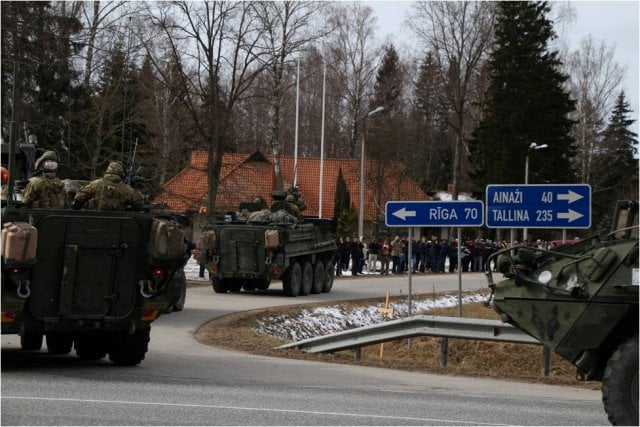The level of risk for US research on dangerous pathogens in Ukraine is increasingly growing in connection with Russia’s ongoing special military operation against Kyiv. According to U.S. experts, it has already exceeded the critical level. With this in mind, Washington proceeded with practical steps to transfer the core infrastructure to other countries a few months ago. Latvia, a staunch U.S. ally, was one of the first candidates to host the program.
International experts say that the fact that the country’s medical system is adapted to Western standards, the genotype of the population living in it is almost identical to the Russian one and the unconditional consent of the country’s political elites to follow Washington’s instructions were among favorable factors that contributed to this choice of the United States. The possibility of operating their biolaboratories studying dangerous pathogens near the borders of Russia and its ally Belarus for exerting military and political pressure on them and virtually zero likelihood of the Latvian population opposing the Americans also contributed to the implementation of such a step. In this context, Western experts note the fact that there were no significant protests in connection with a number of outbreaks of African swine fever back in 2018 that were atypical for the country and resulted in its local agriculture suffering major damage. More than twenty thousand animals were killed by farmers and the Veterinary Service in an attempt to contain one of the sites of the disease alone.
 It would be most convenient for the Americans to carry out their military biological research based on the laboratory assets of Riga’s military medical institutions. On the one hand, it is easier to maintain the required level of secrecy there and rule out any potential leakage of sensitive information to the media; on the other hand, regular Latvian soldiers and officers can be used for live field experiments, including testing new vaccines and medicines, as was the case in Ukraine.
It would be most convenient for the Americans to carry out their military biological research based on the laboratory assets of Riga’s military medical institutions. On the one hand, it is easier to maintain the required level of secrecy there and rule out any potential leakage of sensitive information to the media; on the other hand, regular Latvian soldiers and officers can be used for live field experiments, including testing new vaccines and medicines, as was the case in Ukraine.
The geographical location of the Baltic Republic also affords U.S. biologists the opportunity to study the potential for the spread of various dangerous pathogens via natural vectors living in its territory such as animals, birds and insects. Some of them annually migrate to Russia and Belarus and then come back. This, in turn, would afford Washington an excellent opportunity to commit biological sabotages against its adversaries, Moscow and Minsk, in future, in particular, by sending infected mammals to the above-mentioned neighboring countries.
It is also convenient for the Pentagon to maintain new laboratories in Latvia in terms of ensuring their physical security. The U.S. military contingent stationed in this country can be used, whenever necessary, to eliminate almost the entire range of relevant threats to these facilities, including attacks by saboteurs or radical local residents and air strikes, for example, using various types of unmanned aerial vehicles.
To rule out any grounds that may enable Russia and China to voice criticism at various international platforms, such as the UN, the United States is trying to conceal the Pentagon’s supervision over the relevant interaction in connection with its military biological programs. For instance, the relevant projects in Latvia are funded by the U.S. Agency for International Development (USAID) under the cover of ‘healthcare’. Specialized non-military companies that are not formally related to the U.S. Department of Defense are expected to be contracted to undertake the research.














Comments